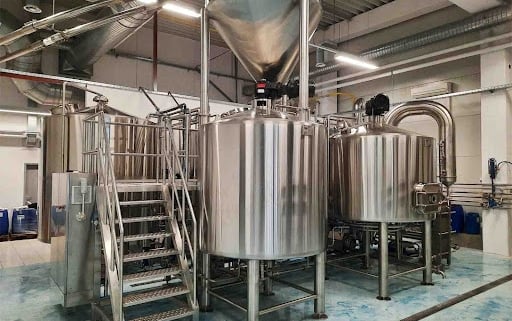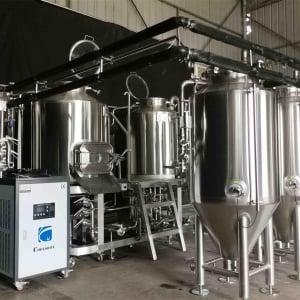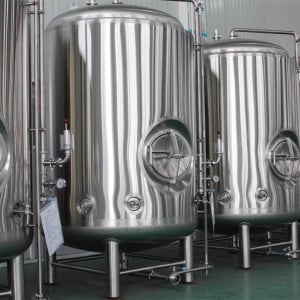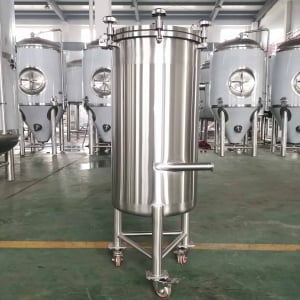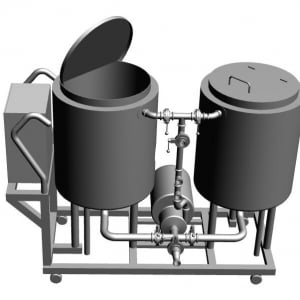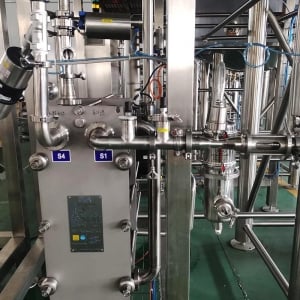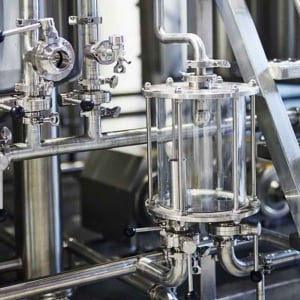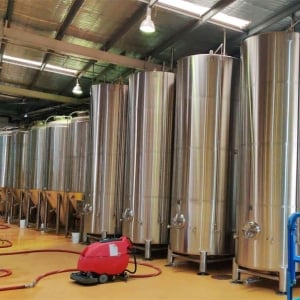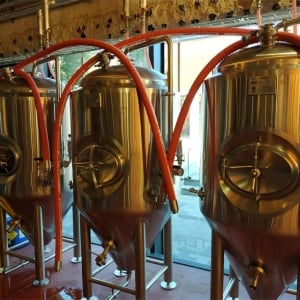Craft Brewing Equipment for Sale
Dreaming of brewing your own craft beer? Craft brewing has exploded in popularity in recent years, and for good reason. It allows you to experiment with flavors, create unique beverages, and enjoy the satisfaction of crafting a delicious beer from scratch. But before you can embark on your brewing journey, you’ll need the right equipment.
This guide will equip you with the knowledge you need to navigate the world of craft brewing equipment for sale. We’ll cover everything from essential brewing systems to considerations for choosing the perfect setup for your needs and budget.
Craft Brewing Equipment: An Overview
Craft brewing equipment encompasses a variety of tools and machinery used throughout the brewing process, from grain milling to fermentation and bottling. The specific equipment you’ll need depends on the scale of your operation (homebrew vs. professional brewery), your desired level of automation, and your budget.
Here’s a quick breakdown of the typical equipment used in craft brewing:
- Grain Mill: Crushes malted barley and other grains to release starches for conversion into sugars during mashing.
- Brew Kettle: Heats water and crushed grains to create wort (sugary liquid).
- Mash Tun: Steeps crushed grains in hot water to convert starches into fermentable sugars.
- Lautering System: Separates wort from spent grains.
- Hop Back: Adds hops to the wort for bitterness, aroma, and flavor.
- Wort Chiller: Cools the wort rapidly after boiling to prevent off-flavors and prepare it for fermentation.
- Fermentation Tanks: Containers where yeast ferments wort into beer.
- Brite Tanks: Used for conditioning, filtering, and carbonating beer before packaging.
- Kegging System: Allows for storing, serving, and dispensing beer under pressure.
- Bottling Line: Equipment for bottling and capping beer for distribution or personal consumption.
- Cleaning and Sanitation Equipment: Essential for maintaining a clean and hygienic brewing environment.
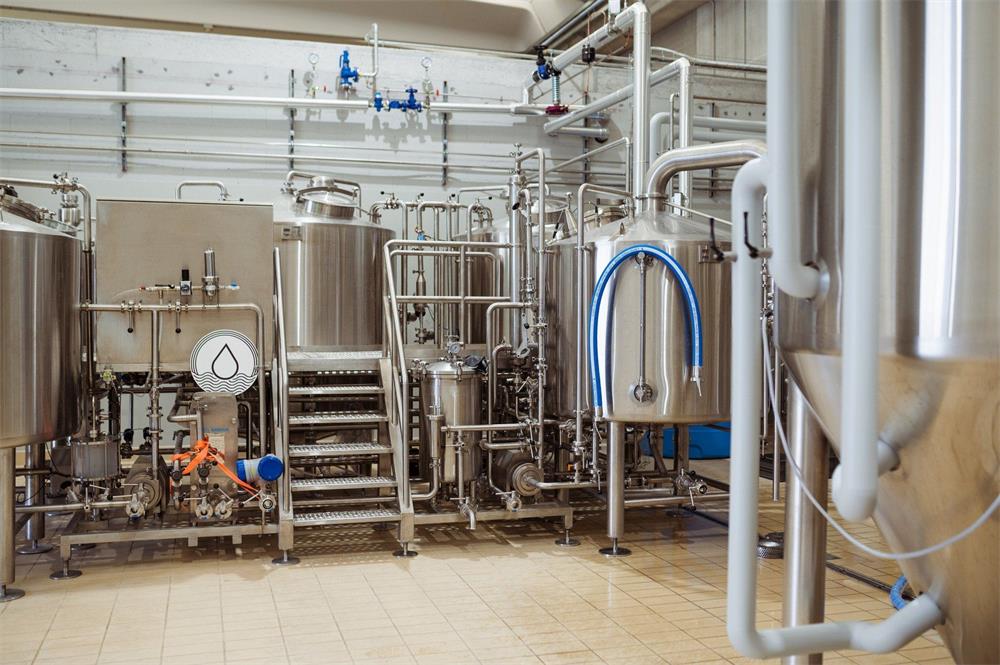
Craft Brewing Equipment: A Detailed Look
Let’s delve deeper into some of the key equipment categories used in craft brewing:
| Equipment Category | Description |
|---|---|
| Grain Mill | Crushes malted barley and specialty grains to expose starches for conversion into sugars during mashing. There are two main types of grain mills: roller mills and hammer mills. Roller mills are preferred by most craft brewers as they produce a more uniform crush, leading to better efficiency and easier lautering. |
| Brew Kettle | A large pot used to heat water and crushed grains to create wort. Bre kettles come in various sizes and materials, with stainless steel being the most popular choice for its durability and ease of cleaning. |
| Mash Tun | A vessel used for steeping crushed grains in hot water during the mashing process. This allows enzymes in the grain to convert starches into fermentable sugars. Mash tuns can be insulated to maintain consistent temperatures throughout the mash. |
| Lautering System | The process of separating the wort (sugary liquid) from the spent grains after mashing. Lautering systems can be gravity-fed or pump-based. |
| Hop Back | A vessel used to add hops to the wort after boiling. This allows for the addition of aroma and flavor hops without introducing bitterness. |
| Wort Chiller | A device used to rapidly cool the wort after boiling. Rapid cooling is essential to prevent the wort from developing off-flavors and to prepare it for fermentation at the proper temperature. |
| Fermentation Tanks | Containers where yeast ferments wort into beer. Fermentation tanks come in a variety of sizes and materials, with stainless steel being the most common choice for professional breweries. |
| Brite Tanks | Used for conditioning, filtering, and carbonating beer before packaging. Brite tanks allow brewers to clarify the beer and add carbonation for a smoother, more enjoyable drinking experience. |
| Kegging System | A system for storing, serving, and dispensing beer under pressure. Kegs are reusable containers that keep beer fresh for extended periods. Kegging systems typically include kegs, a keg washer, a CO2 tank, and a regulator. |
| Bottling Line | Equipment used for bottling and capping beer for distribution or personal consumption. Bottling lines can be simple and manual or complex and automated. |
| Cleaning and Sanitation Equipment | Essential for maintaining a clean and hygienic brewing environment. This includes items like hoses, brushes, pumps, and sanitizing chemicals. |
Capacity, Space Requirements & Design Considerations
When choosing your brewing equipment, it’s crucial to consider several factors, including:
| Factor |
|---|
| Capacity: The amount of beer you plan to brew per batch. Homebrew systems typically range from 1 gallon to 5 gallons, while professional brewery systems can produce hundreds or even thousands of gallons per batch. |
| Space Requirements: The amount of space you have available for your brewing equipment. Homebrewers can often get by with a small footprint in a garage or basement, while professional breweries require dedicated facilities. |
| Design and Layout: The layout of your brewing space and the design of your equipment will impact your efficiency and workflow. Consider factors like the placement of equipment, the ease of moving ingredients and wort around, and the ability to clean and maintain your equipment. |
| Customization: The ability to customize your equipment to fit your specific needs and preferences. Some equipment manufacturers offer modular systems that allow you to add components as your brewing operation grows. |
Craft Brewing Equipment for Sale: Price Range
The price of craft brewing equipment varies widely depending on the type of equipment, its size and capacity, its features, and its brand. Here’s a general breakdown of the price ranges for some common brewing equipment categories:
| Equipment Category | Price Range (USD) |
|---|---|
| Grain Mill | $50 – $500+ |
| Brew Kettle | $100 – $5,000+ |
| Mash Tun | $200 – $10,000+ |
| Lautering System | $100 – $5,000+ |
| Hop Back | $100 – $2,000+ |
| Wort Chiller | $50 – $500+ |
| Fermentation Tanks | $100 – $10,000+ |
| Brite Tanks | $500 – $20,000+ |
| Kegging System (Basic) | $200 – $500+ |
| Bottling Line (Basic) | $100 – $1,000+ |
Craft Brewing Equipment Suppliers
There are many reputable suppliers of craft brewing equipment, both online and in brick-and-mortar stores. Here are a few popular options to get you started:
| Supplier | Description |
|---|---|
| Northern Brewer | https://www.northernbrewer.com/ offers a wide variety of homebrew equipment and supplies, from beginner kits to professional-grade equipment. |
| Austin Homebrew Supply | https://austinhomebrew.com/ carries a large selection of homebrew equipment, ingredients, and resources for brewers of all experience levels. |
| MoreBeer! | https://www.morebeer.com/ is a one-stop shop for all your homebrewing needs, offering equipment, ingredients, and educational resources. |
| Midwest Supplies | https://www.midwestsupplies.com/ provides a vast selection of homebrew equipment and supplies, including brewing systems, kegging equipment, and bottling supplies. |
| Brewers Hardware | https://www.brewershardware.com/ specializes in high-quality brewing equipment and parts for both homebrew and professional breweries. |
Installation, Operation & Maintenance of Craft Brewing Equipment
The installation, operation, and maintenance of your craft brewing equipment will vary depending on the specific equipment you purchase. However, here are some general tips:
- Installation: Many brewing equipment suppliers offer installation services, which can be helpful if you’re not comfortable assembling the equipment yourself.
- Operation: Most brewing equipment manufacturers provide instruction manuals that detail how to operate and maintain their equipment. It’s important to read and follow these instructions carefully to ensure safe and efficient operation.
- Maintenance: Regular cleaning and sanitation of your brewing equipment is essential to prevent the growth of bacteria and to maintain the quality of your beer. The specific cleaning and sanitation procedures will vary depending on your equipment, but generally involve using hot water, sanitizing solutions, and brushes.
Choosing the Right Craft Brewing Equipment Supplier
When choosing a craft brewing equipment supplier, consider the following factors:
- Selection: The supplier should offer a wide variety of equipment to fit your needs and budget.
- Price: Compare prices from multiple suppliers before making a purchase.
- Customer Service: Choose a supplier with a good reputation for customer service in case you need help with your equipment.
- Shipping: Factor in the cost of shipping when comparing prices from different suppliers
Craft Brewing Equipment: Pros and Cons
There are many advantages to brewing your own beer, but it’s also important to be aware of the challenges involved. Here’s a breakdown of the pros and cons of craft brewing equipment:
Pros
- Creativity and Control: With your own equipment, you have the freedom to experiment with different ingredients, recipes, and brewing techniques to create unique and personalized beers.
- Freshness and Quality: Homebrewed beer is typically fresher and less processed than commercially produced beers. You can also control the quality of the ingredients you use.
- Sense of Accomplishment: There’s a great sense of satisfaction that comes from brewing your own beer and enjoying the fruits (or should we say, hops?) of your labor.
- Cost Savings: Over time, brewing your own beer can be more cost-effective than buying craft beer at the store, especially if you brew larger batches.
- Social Activity: Homebrewing can be a fun and social activity to share with friends and family. You can host brewing sessions, share your creations with others, and learn from each other’s experiences.
Cons
- Upfront Investment: The cost of purchasing brewing equipment can be significant, especially if you’re looking to set up a professional-grade system.
- Time Commitment: Brewing beer takes time and effort. From steeping grains to cleaning and sanitizing equipment, the brewing process can be a multi-day affair.
- Learning Curve: There’s a learning curve involved in brewing beer. It takes time and practice to perfect your technique and produce consistently high-quality beer.
- Space Requirements: Brewing equipment can take up a considerable amount of space, especially if you’re brewing larger batches.
- Trial and Error: Expect some trial and error in the beginning. There will be mistakes along the way, but that’s all part of the learning process.
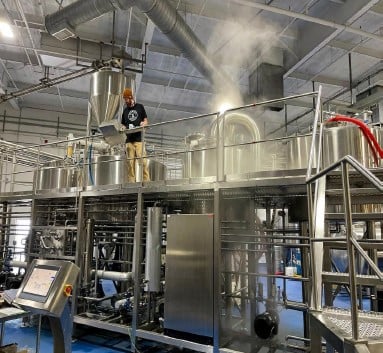
Selecting the Perfect System
Choosing the right craft brewing equipment depends on several factors, including:
- Your Experience Level: If you’re a beginner, it’s best to start with a basic homebrew system. As you gain experience, you can upgrade to more sophisticated equipment.
- The Type of Beer You Want to Brew: Different beer styles may require specialized equipment. For example, some lagers require cold fermentation temperatures, which may necessitate a temperature-controlled fermentation chamber.
- Batch Size: Consider how much beer you plan to brew per batch. Homebrew systems typically range from 1 gallon to 5 gallons, while professional brewery systems can produce hundreds or even thousands of gallons per batch.
- Your Budget: Craft brewing equipment can range in price from a few hundred dollars to tens of thousands of dollars. Determine how much you’re comfortable spending before you start shopping.
- Available Space: Consider the amount of space you have available for your brewing equipment. Homebrewers can often get by with a small footprint, while professional breweries require dedicated facilities.
FAQs
Here are some frequently asked questions (FAQs) about craft brewing equipment:
Q: What is the best type of craft brewing equipment for beginners?
A: There are many beginner-friendly homebrew systems available. A good option is to start with a complete homebrew kit that includes all the essential equipment you need to get started, such as a brew kettle, fermenter, airlock, bottles, and sanitizer.
Q: How much does it cost to get started with home brewing?
A: You can get started with home brewing for a few hundred dollars. The cost will vary depending on the equipment you choose and the size of your batches.
Q: Do I need a permit to brew beer at home?
A: The regulations for home brewing can vary depending on your location. It’s always best to check with your local authorities to see if any permits are required.
Q: Where can I learn more about home brewing?
A: There are many resources available to help you learn more about home brewing. Here are a few suggestions:
- Books: There are many excellent books on home brewing available at your local library or bookstore.
- Online Forums: There are many online forums where you can connect with other homebrewers and ask questions.
- Homebrew Supply Stores: Many homebrew supply stores offer classes and workshops on home brewing.
By following these tips and considering the factors mentioned above, you can choose the right craft brewing equipment to jumpstart your home brewing adventures and embark on a rewarding journey of creativity, discovery, and delicious craft beers.

